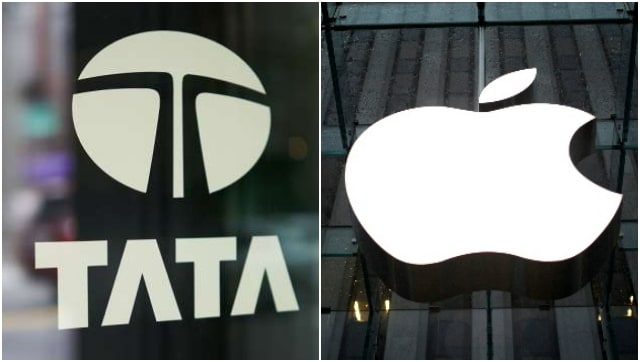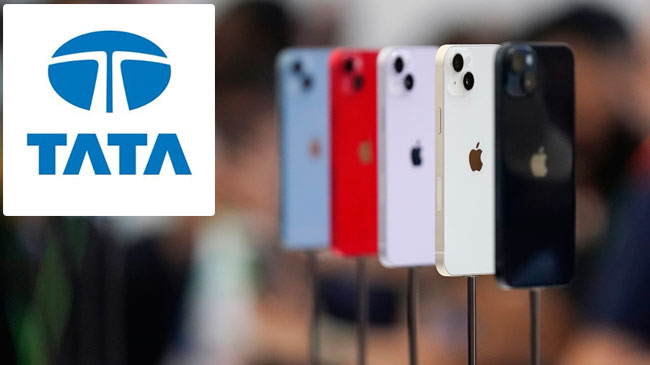Tata Group closes in on deal to become first Indian iPhone maker

Tata Group closes in on deal to become first Indian iPhone maker
According to sources familiar with the matter, Tata Group, India’s largest conglomerate, is nearing an agreement to acquire a factory owned by Wistron Corp., an Apple Inc. supplier. This development marks the first time an Indian company would venture into the assembly of iPhones. The factory, located in the southern state of Karnataka, is valued at over $600 million and has been the subject of negotiations for approximately a year.
The Wistron factory in Karnataka employs over 10,000 workers who are involved in the assembly of the latest iPhone 14 model. If the acquisition by Tata Group proceeds as planned, it would signify a significant move for the conglomerate into the manufacturing and assembly of high-profile consumer electronics.
This potential acquisition aligns with the Indian government’s initiatives to promote local manufacturing and the production of electronic devices within the country. It also highlights the growing capabilities of Indian companies in the electronics manufacturing sector and their ability to attract global investments and partnerships.

The move by Tata Group to enter the iPhone assembly business demonstrates their ambition to diversify and expand their business operations into new areas. It also reflects their commitment to tapping into the rapidly growing smartphone market in India and leveraging the country’s skilled workforce.
However, it is essential to note that the information is based on anonymous sources, and an official announcement or confirmation from Tata Group or Wistron Corp. is still pending.
According to the sources, Wistron had made commitments to ship iPhones worth a minimum of $1.8 billion from the Karnataka factory in the fiscal year ending in March 2024 in order to qualify for state-backed financial incentives. Additionally, Wistron had plans to triple the workforce at the plant by the following year.
If Tata Group proceeds with the acquisition of the Wistron factory, they are expected to honour the commitments made by Wistron to ship iPhones and expand the workforce. This ensures that the state-backed financial incentives remain intact and the growth trajectory of the factory is maintained.

By acquiring the factory and taking over the commitments, Tata Group demonstrates its intent to continue the iPhone assembly business in India. This move aligns with the government’s push for domestic manufacturing and reinforces India’s position as a significant player in the global smartphone manufacturing industry.
It’s important to note that while the sources indicate the commitment by Wistron and Tata Group’s intention to honour them, an official announcement or confirmation from both companies is still awaited to provide more clarity on the matter. Introducing an Indian-manufactured iPhone is expected to contribute to Apple’s ongoing efforts to diversify its production beyond China and expand its manufacturing capabilities in India. This move aligns with Apple’s strategy to reduce its dependence on Chinese manufacturing and tap into the potential of the Indian market.
Wistron, one of Apple’s key Taiwanese suppliers, has already been exporting iPhones worth nearly $500 million from India in the three months leading up to June 30. This highlights the success of Apple’s manufacturing operations in India and the growing contribution of Indian factories to the company’s global supply chain.
In addition to Wistron, Apple’s other major Taiwanese suppliers, Foxconn Technology Group and Pegatron Corp., have also been scaling up their local manufacturing operations in India. The involvement of multiple Taiwanese suppliers underscores their confidence in India as a manufacturing destination and highlights the country’s potential as a hub for technology manufacturing.
Apple’s focus on expanding its manufacturing base in India is driven by several factors, including the country’s large consumer market, favourable government policies promoting local manufacturing, and the potential for cost optimization. By manufacturing iPhones in India, Apple can not only cater to domestic demand but also leverage India’s skilled workforce and strategic location to serve other markets in the region.
The move toward building technology manufacturing in India aligns with the government’s “Make in India” initiative, which aims to boost domestic manufacturing and transform the country into a global manufacturing hub. It also contributes to India’s efforts to attract foreign investments and foster technological capabilities.
Overall, adding an Indian-manufactured iPhone and the growing presence of Apple’s key suppliers in India signifies the country’s increasing importance in Apple’s global supply chain. It also reflects the ongoing shift in technology manufacturing from China to other regions, including India, as companies seek to diversify their production and tap into emerging markets.The Indian government, under the leadership of Prime Minister Narendra Modi, has implemented various initiatives to promote domestic manufacturing and attract foreign investments in sectors such as electronics and technology.
For Apple, diversifying its production away from China has been a strategic priority, driven by factors such as the Covid-19 pandemic’s impact on global supply chains and rising tensions between the United States and China. As a result, Apple has been actively exploring alternative manufacturing locations, including India, to reduce its reliance on China.
The establishment of an Indian company involved in iPhone manufacturing could have significant implications for India’s challenge to China’s position as the world’s factory. It would serve as a strong endorsement of India’s manufacturing capabilities and showcase the country’s potential to become a preferred manufacturing destination for global electronics brands.
The successful establishment of an Indian iPhone manufacturing facility could inspire other international electronics companies to consider expanding their production in India as well. Reducing dependence on China and diversifying production to other countries can help mitigate risks associated with geopolitical tensions, disruptions in global supply chains, and changes in trade policies.
This aligns with India’s broader strategy to attract foreign investment, create employment opportunities, and develop a robust manufacturing ecosystem. By positioning itself as an attractive manufacturing destination, India aims to leverage its large consumer market, skilled workforce, and favourable government policies to become a global manufacturing hub.

Ultimately, an Indian company manufacturing iPhones could catalyze other global electronics brands to explore production in India, fostering greater competition and diversification in the global manufacturing landscape. This would contribute to India’s economic growth and support its aspirations to become a leading player in the worldwide manufacturing sector.




